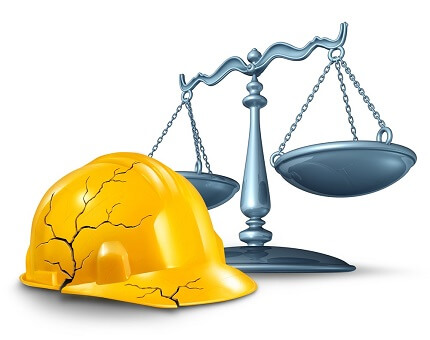
Disclaimer: This article should not be taken as a form of legal advice. It is only a resource that to inform readers regarding the important things to remember when you get involved in a personal injury at work. You should seek the help of an attorney for legal advice about any legal matters.
Your work as a project manager involves ensuring that all employees are doing their jobs right. An efficient workflow is important to your job as the company is strict when it comes to meeting deadlines. As part of your job, you do ocular inspections as well as floor walks. You check the work progress of your colleagues just to make sure they are working.
You are just doing your job on a normal day when you suddenly slip and fall. Your instincts kick in, and you used your hand as a shield to break your fall. Sadly, your hand suffered a fracture.
Personal Injury at Work
Personal injury or PI is when a person experiences physical, mental or emotional injury due to someone’s negligence. When you sustain any kind of injury while you are at work due to someone else’s neglect, you have the option to file a personal injury lawsuit.
Another option is submitting a compensation case. A worker submits this case when the injury is due to his or her employment. He or she is entitled to some type of compensation.
Effects of a Personal Injury at Work
The injured person can suffer more than just sprains and bruises when involved in a personal injury while at work. Some health issues that need extra attention include:

- Physical injuries. Bruises, fractures, sprains, and muscle aches are some of the most common physical injuries you might experience when you get injured at work. These physical injuries require medical attention, diagnostic tests, and medication.
- Financial loss. Due to your physical injuries, you may not be able to work for a number of days. For extreme cases, it could take months or years for you to recover. Your inability to work will eventually take its toll when it comes to your finances. You might find it difficult to pay for your medication, daily expenses, and monthly dues.
- Emotional injuries. Accidents not only cause physical injuries, but they also cause an injured person to experience several emotional injuries. Some of the most common injuries are:
- Anxiety
- Depression
- Irritability
- Hypersensitivity
- Lack of concentration and
- Post-Traumatic Stress Disorder or PTSD
The losses associated with personal injury accidents can affect the quality of life of the injured, which is why they should file a claim for the damages.
What You Need to Know When Involved in a Personal Injury at Work
Different states impose different laws when it comes to personal injury accidents at work. When you are involved in such a case, it is important to be familiar with the worker’s compensation laws.
Be familiar with the covered expenses
Before you seek compensation for your injury, you should know the different expenses covered by the compensation law. These expenses are:
- Medical bills and other related expenses.
- Retaining costs.
- Compensation for the time of your recovery period.
- In the event of the death of a worker, the family gets the benefits.
If you feel like you deserve more compensation, you can discuss it with your lawyer and opt to file a personal injury claim versus the employer.
Know the process of filing a worker’s compensation claim
You can file a worker’s compensation claim against your employer for your medical expenses and other costs you incurred due to your injury. You have to familiarize yourself with the process:

- Inform your employer about your injury. Report what happened to your employer. Your report must be in writing as a verbal reporting is null and void. If your injuries are serious, your family or relative must be the one to report it to your employer.
- Request for medical assistance. Seek medical help from the healthcare provider that is accredited by your company’s worker’s compensation coverage.
- Your employer will file the claim with their insurance company. The company is expected to file the report with their insurance company.
- The insurance company will make the decision. The insurer will review all the documents submitted before making a decision. Therefore, it is important to submit the complete requirement upon filing.
- Consult with your attorney. If your claim is denied, you should consult with your lawyer. He or she may discuss whether you can make an appeal to your case or file a personal injury claim.
It is helpful to choose a competent attorney who is familiar with personal injury cases. He or she can give you reliable advice on how to make a claim for your accident in case your worker’s compensation claim is denied.
If you’ve been involved in a truck accident while working whether you’re the victim or the responsible party, this website will be helpful.







